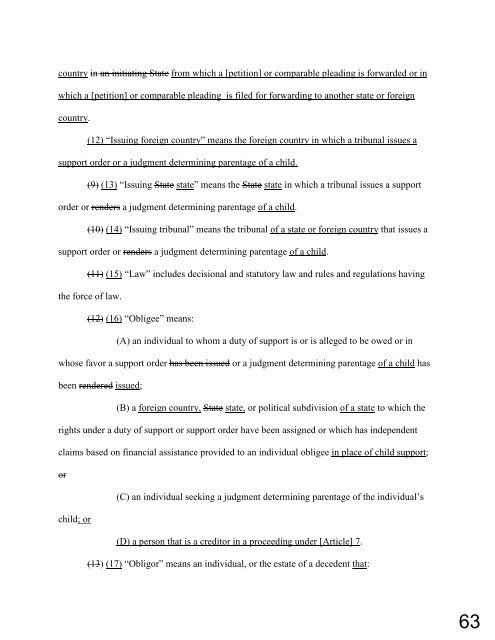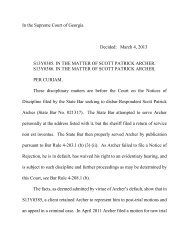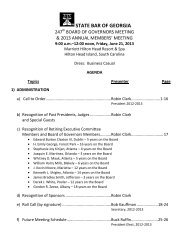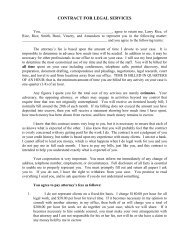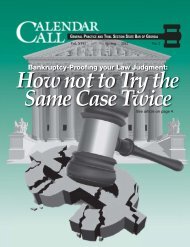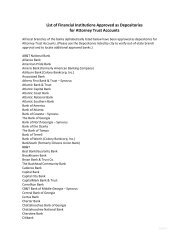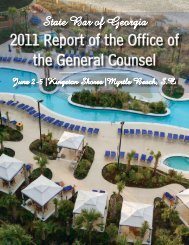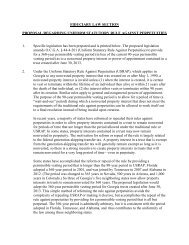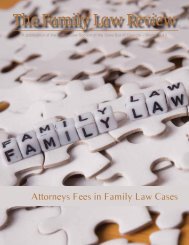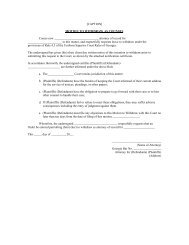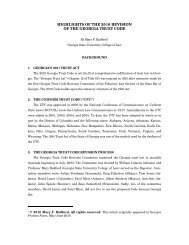2008 Amendments to the Uniform Interstate Family Support Act ...
2008 Amendments to the Uniform Interstate Family Support Act ...
2008 Amendments to the Uniform Interstate Family Support Act ...
Create successful ePaper yourself
Turn your PDF publications into a flip-book with our unique Google optimized e-Paper software.
country in an initiating State from which a [petition] or comparable pleading is forwarded or in<br />
which a [petition] or comparable pleading is filed for forwarding <strong>to</strong> ano<strong>the</strong>r state or foreign<br />
country.<br />
(12) “Issuing foreign country” means <strong>the</strong> foreign country in which a tribunal issues a<br />
support order or a judgment determining parentage of a child.<br />
(9) (13) “Issuing State state” means <strong>the</strong> State state in which a tribunal issues a support<br />
order or renders a judgment determining parentage of a child.<br />
(10) (14) “Issuing tribunal” means <strong>the</strong> tribunal of a state or foreign country that issues a<br />
support order or renders a judgment determining parentage of a child.<br />
(11) (15) “Law” includes decisional and statu<strong>to</strong>ry law and rules and regulations having<br />
<strong>the</strong> force of law.<br />
(12) (16) “Obligee” means:<br />
(A) an individual <strong>to</strong> whom a duty of support is or is alleged <strong>to</strong> be owed or in<br />
whose favor a support order has been issued or a judgment determining parentage of a child has<br />
been rendered issued;<br />
(B) a foreign country, State state, or political subdivision of a state <strong>to</strong> which <strong>the</strong><br />
rights under a duty of support or support order have been assigned or which has independent<br />
claims based on financial assistance provided <strong>to</strong> an individual obligee in place of child support;<br />
or<br />
(C) an individual seeking a judgment determining parentage of <strong>the</strong> individual’s<br />
child; or<br />
(D) a person that is a credi<strong>to</strong>r in a proceeding under [Article] 7.<br />
(13) (17) “Obligor” means an individual, or <strong>the</strong> estate of a decedent that:<br />
63


